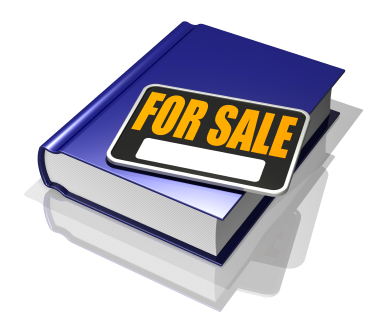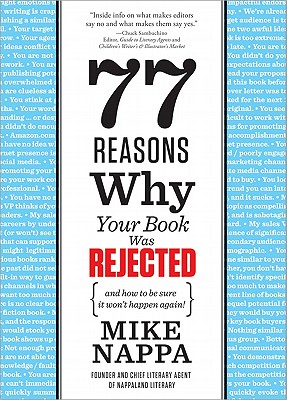Back in November, I shared with you the checklist I used to put together my own book proposal. It contained all the building blocks I’d become familiar with when working as an editorial assistant for an academic book publisher, plus a few other tips I’d picked up over the years from former writing professors and how-to books.
I can only assume that, by this point, you have an amazing, solid book proposal ready to go, and are already daydreaming about the book advance and lit parties in your future. Not so fast. While academic publishers — and some small presses — accept unsolicited book proposals and manuscripts, most traditional book publishers won’t look at your work unless it comes to them via a literary agent.
I can hear you grumbling already. What the what!? Another barrier to publication? But believe me. You’ll only benefit from the help an agent can provide. Not only are they the gatekeepers to big-name publishers, but they have their fingers on the pulse of the literary marketplace, can help you strengthen your proposal, have relationships with editors (and intimate knowledge of their preferences) that allow them to target the best possible publishers for your book, and can also negotiate a helluva book contract (a process during which many of us would be completely out of our element).
Yes please to all of that.
So how do you go about finding one?
Read the acknowledgments pages of your favorite books. I’ve been working on a prescriptive memoir about being a sex writer with sexual dysfunction. In order to pinpoint agents who might be interested in such a book, I thought back to all the sex-related books, prescriptive nonfiction books, and irreverent memoirs I’d read and loved. I figured anyone who’d represent those authors might possibly be into me, too. Luckily, most authors thank their agents in the acknowledgments section of their book. So when drawing up a list of possible agents to query, I flipped to the backs of My Year with Eleanor, Yoga Bitch, Project: Happily Ever After, Mating in Captivity, Introvert Power, and other such books. I also took note of which agents had landed their authors deals with Seal Press, a small publishing house I especially admired.
Flip through agent directories. In a bit of fortuitous timing, I received a review copy of Jeff Herman’s Guide to Book Publishers, Editors, & Literary Agents 2012 back in November. I loved it because, in gathering information from agencies, Herman had asked for info like: hobbies and personal interests; subjects and categories they liked to agent; the most effective way for writers to grab their attention; favorite books, movies, and TV shows; the most common mistakes writers make when pitching; etc. Not only did this help me better craft my queries, but this info allowed me to see these agents not just as agents… but as people.
Several months later, I received Chuck Sambuchino’s 2012 Guide to Literary Agents as a Christmas present. This particular directory made it clear which agencies were more open to new writers and which weren’t.
I also paid attention to info on geographic location, and only targeted the agents who were based in NY or NJ. I wanted the option of meeting up with my future agent in person.
And both books also contained additional content on crafting query letters, putting together a nonfiction book proposal, how to make the most of a writer’s conference, copyright basics, and more.
Visit agency websites. After I’d flipped through acknowledgments pages and agency directories, I visited the websites of the agents on my list. This gave me even more information on whether they were accepting proposals at the time, how they preferred to receive queries, and how long it typically took them to respond (so I knew when to follow up).
Send a query letter first. Then I started sending out my first wave of query letters. You may be eager to mail out your full proposal right off the bat (especially after you spent so much time putting it together) but, for the most part, agents prefer to receive a brief query letter first. This is because they’re just inundated with queries and proposals, and don’t have the time to read through them all. If they’re intrigued by your query letter and interested in reading more, they’ll request your full proposal.
Other options. Of course, there are other ways to familiarize yourself with the agents out there. I read this mediabistro list of the Best Literary Agents on Twitter, and followed the ones who seemed the most interesting. (I even referenced a specific tweet in one of my query letters.) Other authors register for Publishers Lunch – through which they can read book industry news, receive alerts about new book transactions, and search a database to see which agents are representing which books — or subscribe to Publishers Weekly. Some authors make agent connections at conferences (and some conferences host sessions in which you can sign up to query agents in person).
In the end, it took me about three (excruciating) months to find my literary agent, using the steps above. Those three months included five rejections from agencies not interested in seeing my full proposal; three requests for a full proposal, followed by three very pleasant and constructive rejections; and two howling vortexes of silence.
Actually, I didn’t even directly query the woman who eventually offered me representation. I queried her colleague after becoming enamored of a memoir she’d represented. She loved my proposal but worried she was too much of a prude to give it the best possible chance in this tough publishing market. So she passed it along to her colleague and the stars aligned.
When my agent first emailed me, I paused to do a happy dance to LMFAO’s “Sexy and I Know It.” Then, in my response email to the aforementioned agent, I admitted to doing a happy dance to LMFAO’s “Sexy and I Know It.” When she responded by asking if we were separated at birth, I knew it was all going to work out.
I know there’s still no guarantee I’ll get an offer from a book publisher. But at this moment, I’m far closer to the authorial dreams I’ve been nursing since the age of 5 than I’ve ever been before.
Having an agent? It can certainly help you beat the odds.
Related: Selling Your First Book: A Checklist of Book Proposal Essentials, How To Increase Your Chances of Landing That Book Deal, Breakneck Book Report: Adair Lara’s Naked, Drunk, and Writing, Spill It: How Do You Handle Rejection as a Writer?




